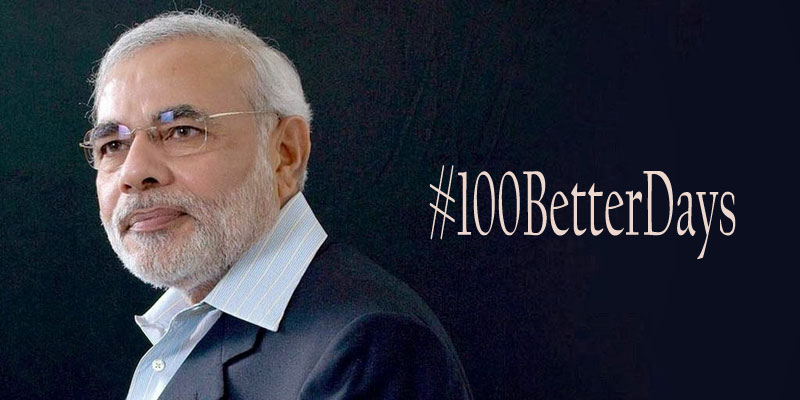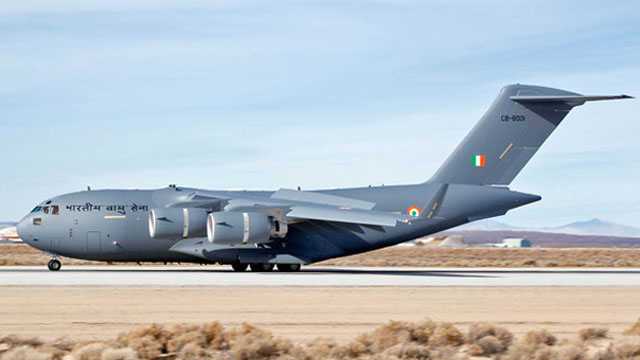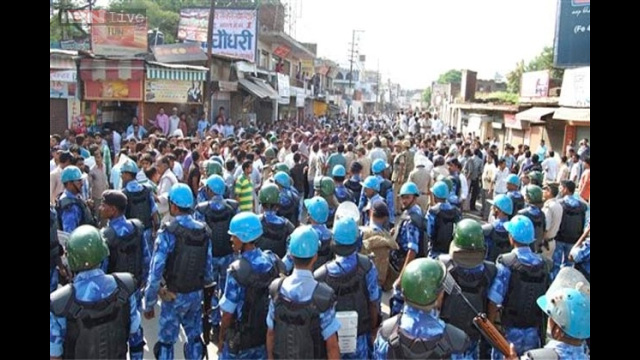20 decisions taken by PM Modi and his government that say we had better 100 days than any of the previous governments so far.
It has been 100 days since Prime Minister Narendra Modi took charge of his office and the nation.
He had won a landslide mandate on his promises of industrial development, higher economic growth, better governance, employment generation and inclusive policy decisions. And he has made a good start towards all of it.
The Prime Minister worked towards better relations with neighboring countries as well.
But the critics are not satisfied. There is a general consensus among them that he has not done enough to boost economic growth, that he has not done anything to stop inflation, that the Pakistan is violating ceasefire despite his ‘saree’ diplomacy with its PM Nawaz Sharif, and that his government is no different than the previous UPA as it is following latter’s policies extensively.
They also charge that the Prime Minister and his ministers are doing their best to divide the country on communal lines.
But here are 20 decisions taken by PM Modi and his government that say we had better 100 days than any of the previous governments so far:
- Panel created to locate the estimated Rs.50,000 crore ($8 billion) in ‘black money’ estimated to have been stashed away in tax havens abroad.
- The previous government’s 62 panels, called Groups of Ministers (GOMs) and Empowered Groups of Ministers (EGOMs), supposed to aid the decision-making process scrapped. Modi says there would be one decision-making centre.
- The Planning Commission that existed for 50 years scrapped as it had not moved with the times. Is likely to be replaced by a think tank.
- Collegium or internal system of making appointments to the higher judiciary scrapped in favour of a commission comprising the prime minister and the chief justice of India.
- Juvenile Justice Act to be amended to enable Juvenile Justice Board decide whether juvenile above 16 years involved in heinous crimes such as rape be tried in a regular court.
- Ambitious financial inclusion scheme – Pradhan Mantri Jan Dhan Yojana – launched with 15 million bank accounts opened and each of the holders provided Rs.100,000 insurance cover on the first day. First phase target of 75 million account holders advanced to Jan 26, 2015, from Aug 14 that year.
- Government to create a National Food Grid to connect deficient areas with surplus producing regions to reduce wastage of fruit and vegetables and ensure stable prices. Government expects it to help contain price rise.
- Modi prioritising relations with Asian nations as a part of government’s Look East policy, visiting Bhutan and Nepal, followed by Japan Aug 30-Sep 3. Chinese Foreign Minister Wang Yia’s visit to India is seen as a positive development for bettering relations between the two countries.
- Cancelled Aug 25 foreign secretary-level talks with Pakistan after Pakistan High Commissioner Abdul Basit invited Kashmiri separatists for talks. Seen as the government’s tough side.
- Gas price rise put on hold for three months, given that this is a sensitive issue and needs further discussion to address many important aspects before taking the final call.
- In a major pointer to government’s firmness against graft in defense procurement, no further deals with Italian conglomerate Finmeccanica, whose Britain-based subsidiary Agusta-Westland is enmeshed in the kickbacks relating to the purchase of VVIP helicopters.
- Ministers asked to adopt austerity measures; among others, asked not to buy new cars. Ministers were also asked to get PMO approval for expenditure above Rs.1 lakh.
- Modi government has relaxed a number of environmental norms for industry, especially mining, roads, power and irrigation. Permission from the gram sabha (village council), earlier a key requirement – and obstacle – for the mining industry, will no longer be a requisite for companies. The dilution of a slew of regulations related to environment, forest and tribal rights is seen as a shot in the arm for investments in these sectors.
- India virtually scuttled a long-pending global trade pact at the WTO that would have streamlined customs rules across the world. India’s intransigence stemmed from the argument that it would not sign the pact unless there was parallel movement on a solution on public stockholding for food security. And as recently as Monday, India’s Commerce Minister Nirmala Sitharaman cancelled at the last minute her trip to Myanmar to sign an Asean services trade agreement.
- Modi, who was elected from Varanasi, considered one of the holiest cities in Hindu legend, called upon the nation to fix this at a post-election rally, and followed it up with a Rs 2,037 crore allocation in the Budget for a comprehensive Ganga development plan.
- Few people expected a Gandhi-like hectoring from Narendra Modi in his debut address to the nation from the ramparts of the Red Fort. But he did exactly that, shaming a nation on its lack of hygiene, sanitation and toilets, especially for women and children. His lament, if one may call it that, evoked prompt responses: Indian Overseas Bank said it would build toilets in 59 schools (one in each region that it operates in), while corporate heavyweights TCS and Bharti committed Rs 100 crore each towards the programme, F&B multinational Coca-Cola said it would expand on its existing toilet-building projects.
- The setting up of a Skill Development Ministry fulfills the NDA’s election-time promise of job creation by aiming to provide vocational training to youth in a country where only 2 per cent of the population has receiving any formal training.
- The passage of the Apprenticeship Amendment Bill is widely seen as one of the biggest successes in steamrolling labour reforms.
- Aside from kicking off legislative processes, the Modi government has taken executive actions to fix labour market rigidities. For instance, it has provided flexible working hours to offshore oil and rig workers and set up an online portal for firms to file compliance reports that would also end the ‘labour inspector raj’ that results in nearly 1,75,000 annual labour inspections across the country.
- Ending uncertainty of subscribers concerning the Employees’ Provident Fund Organisation, the government speedily announced a Provident Fund rate of 8.75 per cent for the fiscal on August 26 — a first for an organisation whose annual dividend was often announced after the end of the financial year under an indecisive UPA. Notified a higher wage cap for mandatory PF benefits to employees, revising the Rs 6,500 per month ceiling set in 2001 to Rs 15,000 per month.
Much more better days await us as Prime Minister Modi has already achieved considerable success in wooing Japan for investing in various sectors in the country.
(with agency inputs)





